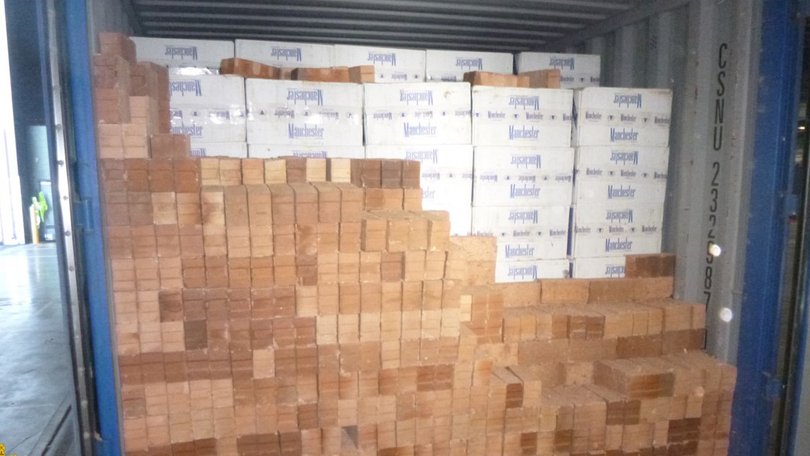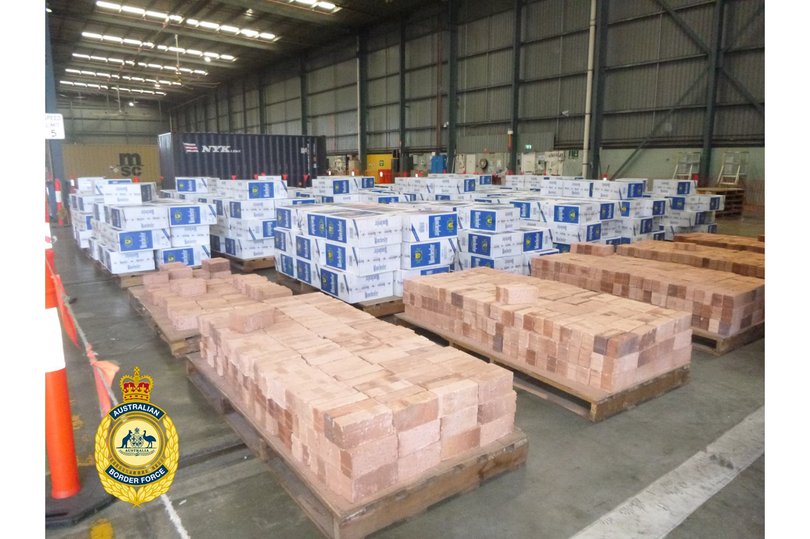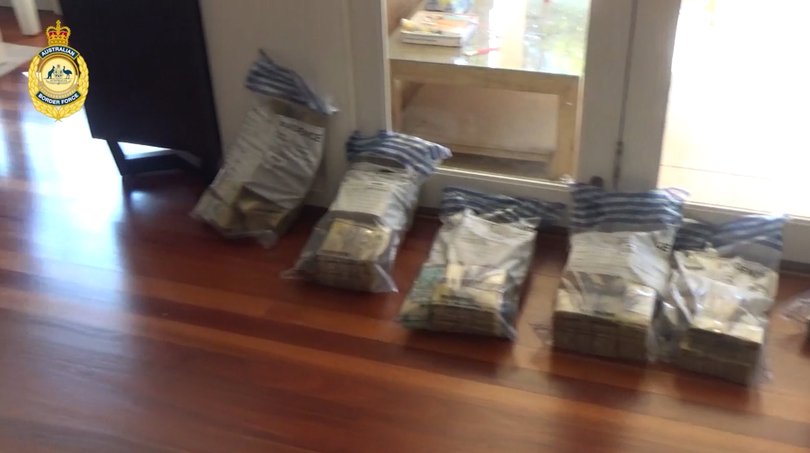WA sea container leads AFP and Border Force to millions of cigarettes and ‘major national crime syndicate’
Police foiled what they are calling a ‘sophisticated criminal operation’ after making the sea container find in WA, with millions of cigarettes concealed in a bizarre way.

A stash of more than four million illicit cigarettes found hidden behind a wall of bricks in a sea container that arrived in Western Australia has led to the smashing of a major national crime syndicate.
An investigation by the Australian Border Force and Australian Federal Police foiled what they are calling a “sophisticated criminal operation” after making the sea container find in Fremantle early last month.
It is alleged the shipment was a “piggyback” operation by a crime syndicate, with the illicit cigarettes added to a legitimate import without the importer’s knowledge.
Sign up to The Nightly's newsletters.
Get the first look at the digital newspaper, curated daily stories and breaking headlines delivered to your inbox.
By continuing you agree to our Terms and Privacy Policy.Investigators discovered the container was due to be forwarded on to an address in New South Wales.
A month earlier, a separate investigation had been launched by the AFP-led Criminal Assets Confiscation Taskforce, with support from AUSTRAC and the Fintel Alliance, which identified criminals were funnelling proceeds of crime into Australian property.

Last week, AFP officers raided a property in St Ives in New South Wales where ABF officers seized more than $2 million in cash and several designer handbags worth $100,000.
Another search warrant was then executed in Auburn in NSW where electronic devices allegedly used by the syndicate were seized.
Prior to the execution of the warrant, the CACT also obtained orders in the Supreme Court of NSW restraining two residential properties, a commercial factory, bank accounts and a vehicle, linked to the suspects, with an estimated value of $22 million.
Customs Enforcement Commander Graeme Campbell said the information sharing and strong collaboration between partner agencies had significantly disrupted the criminal network’s ability to operate within Australia.
“This is a prime example of how criminal groups operating in the illicit tobacco trade re-invest their profits to fund other serious criminal activities” he said

“With the help of our law enforcement partners, we have successfully demonstrated ABFs capability at both our international border and across state borders to bring down criminals seeking to exploit and harm our community.”
AFP CACT Cdr Jason Kennedy said seizing the assets of offenders “driven by greed” — struck at the heart of their motivation, which he said was personal profit.
“When law enforcement recovers illicit gains, it removes the incentive that fuels such crimes and sends a strong deterrent message to others,” he said.
“Offenders consider the confiscation of their assets to be as much, or more, of a punishment than a prison sentence, and removing the profit from the offending will demonstrate that crime does not pay, thereby significantly diminishing the lure of financial gain from the equation.”
AUSTRAC National Manager Law Enforcement, Anthony Helmond said financial intelligence played a critical role in tracking down the proceeds of crime.
“This is a great example of the capability our Public Private Partnership, Fintel Alliance, can deliver in looking across large datasets to identify suspicious activity that can be shared with law enforcement partners to aid in the detection of criminal networks,” he said.
“Criminals are interested in one thing – making money. Outcomes like this one hit them where it hurts. AUSTRAC is proud to work alongside our law enforcement partners to restrain the profits of these criminals who do so much harm to the community.”
Investigations into the alleged illicit tobacco network are ongoing.
Originally published on The Nightly
